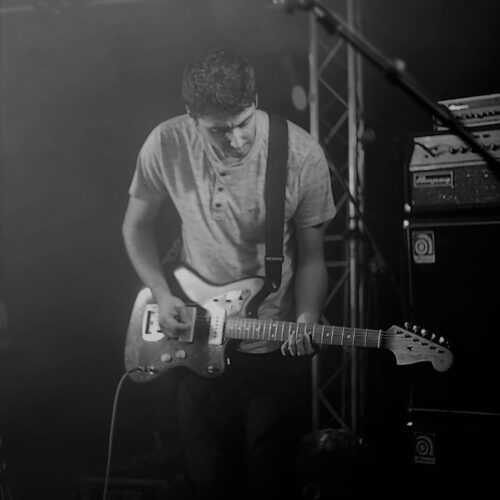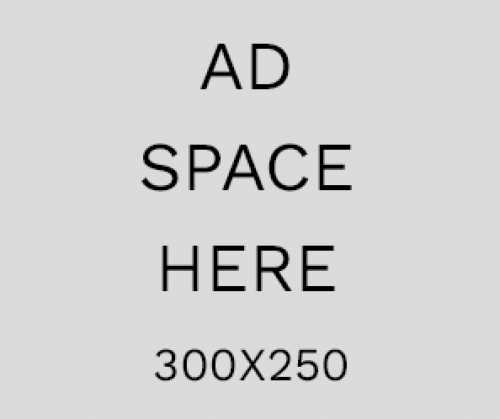
BRUME is an Ambient, post-rock, shoegaze project started by French musician Gaëtan C. in 2020. With six releases out to date including a new collaboration with DzEta called “Connexion” the project is always evolving and expanding it’s sound.
I caught up with Gaëtan to talk about their early musical influences, how they started creating sounds and the making of the new collaboration release.
CMM-What was the first music that really made an impact on you as a kid and what artist or band did you enjoy the most?
An uncle gave me the Wish album by Cure when I was about twelve. I was playing Nintendo when he came along. He gave me the record and told me to go and listen to it, saying that the lyrics were in the CD booklet and that I could follow them, that it was poetry and so on. It was the first time I’d really listened to music in an attentive rather than purely entertaining way. I was actively listening, and something was happening that was going to change my life. I discovered that I loved this art, this means of expression that is music, and I wanted to understand how it was made. The Cure gave me a deep taste for melody and I’ve particularly developed and nurtured this aspect in my music. Of course, that’s not the only aspect or the only band that played a decisive role in my development. I could also mention Mogwai, Sonic Youth, My Bloody Valentine and a lot of post-rock bands.
CMM-When did you start playing music and writing songs?
I really started playing and writing my first songs in high school. When I got out of my small-town college, I found myself going to high school in a bigger town, with people coming from all over, and among them there were some who, like me, showed a certain interest in music. I met a guy there who was a fan of film music, indie rock and contemporary composers. He used to tell me about Twin Peaks, Interpol, The Strokes and also Brian Eno, Philip Glass and Steve Reich. The guy was composing tracks on his keyboard, and it was the fusion of my interest in music, which had started with part of my family, and what this guy called Jérôme was proposing that really got me into playing and composing. We set up a group and composed a sort of EP which was never released, and which will be released in a while because I had fun finding and reworking his tracks before finally finishing them and releasing them.
CMM-You recently released a collaborative E.P. with DzEta. What was the writing and recording process like and what was it like to work with them? What gear and instruments did you use during the sessions?
As far as the EP with DzEta is concerned, I contacted him because I’d liked his collaboration with Dark Supreme (whom I’d first contacted for a collaboration that resulted in the track ‘We All Dance By Ourselves’ released in January). I sent a few ideas and guitar plans to Nico (DzEta) who in turn sent me some beats, other guitars and ideas. We quickly got everything moving in a coherent direction and agreed to produce a 4-track EP called ‘CONNEXION’, based on this long-distance collaboration. Everyone recorded their parts at home with their own equipment (for my part, mainly a Fender Jazzmaster and a few effects), then I took care of the pooling, editing, mixing and mastering. I had a lot of fun mixing our two approaches, trying to make it all fit together without distorting or erasing each other’s worlds. In the end, there was something quite obvious and natural about it. In the end, it’s certainly one of the productions I’ve enjoyed the most. For the first time, I even put some vocals on a track, which automatically became a song, and convinced my partner to sing too.
CMM-If you could do a score for any film director, who would it be and what would the film be about?
If I had to compose music for a film, I’d love it to be for a David Fincher film, since David Lynch is no longer with us. I don’t know exactly what the film would be about, that would be up to him to decide, but without doubt the music would be there to serve the atmosphere of a dark and intense film that would try to shed light on certain dark aspects of humanity or of reality. Basically, BRUME is a film about questioning appearances and pretence, about what seems self-evident but is not. It’s an invitation to see further, to feel deeper, a poetic, even mystical posture of unveiling. More broadly, art is a roundabout way of saying something about the world. In this way, the music of BRUME in a film would have the function of playing its best part in saying what the director wanted to say.
CMM-What do you have coming up next? Any new recordings or shows?
Soon, I’ll be giving my very first solo concert, with an ambient guitar set. Then there will be a series of trio concerts with bass and drums. It’ll be more rock than the solo format. As I’m concerned about the visual dimension of concerts, and also work with someone who can project and play with images live, BRUME concerts will have an immersive dimension that I hope will please and reinforce the particularity of the live experience on offer. Finally, another EP in the shoegaze vein will be released at the end of the year, while other various composition projects are in the pipeline. I hope that all these projects will enable me to gain a bit more visibility, because music is first and foremost made to be listened to.







